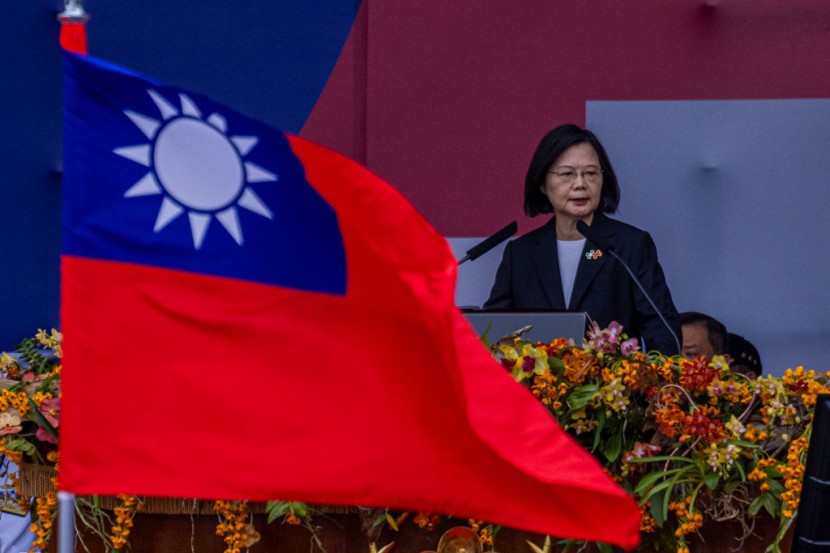Taiwan's President Tsai Ing-wen has expressed her belief that China is currently facing overwhelming domestic challenges, making it unlikely to consider a significant attack on Taiwan soon.
She made these remarks during an interview at the 2023 DealBook Summit in New York, shedding light on the complex dynamics between Taiwan and mainland China, as per South China Morning Post.
Tsai Ing-wen Warns of China Invasion

Tsai's comments come in the wake of a highly anticipated meeting between US President Joe Biden and Chinese President Xi Jinping, which took place in California earlier this month. Amid growing concerns about the possibility of a Chinese invasion of Taiwan, Tsai emphasized that China's internal challenges might be diverting its attention from such an endeavor.
"China's leadership is overwhelmed by its internal challenges," Tsai stated in the recorded interview. "My thought is that perhaps this is not a time for them to consider a major invasion of Taiwan," she added.
The issue of Taiwan remains contentious, with Beijing considering Taiwan a province of China and aiming for "reunification." While Xi Jinping has expressed a desire for a peaceful reunification, he has not ruled out the use of force. Taiwan, on the other hand, strongly opposes the prospect of Chinese rule.
In response to questions about Xi's hopes for a peaceful unification, Tsai reiterated her belief that China's internal challenges were a significant obstacle. She also pointed out that the international community has clarified that war is not an option and peace and stability are in everyone's interest.
US intelligence services have reportedly suggested that Xi Jinping has instructed China's People's Liberation Army to be capable of invading Taiwan by 2027.
However, there is no precise timeline for such an action. Predictions regarding the timing of a potential invasion have varied from 2023 to 2047, with the latter coinciding with the centenary of the People's Republic of China.
Meanwhile, the People's Liberation Army has increased aggressive military actions near Taiwan, including frequent incursions into its air defense identification zone and live-fire drills, often in response to perceived provocations by Taiwan, such as meetings with US government officials.
Tsai also voiced concerns about China's interference in Taiwan's upcoming presidential election, scheduled for January, according to Reuters.
Ongoing Election Interference in Taiwan
She claimed that China had engaged in various forms of interference in every election since 1996 when Taiwan held its first direct presidential elections after martial law.
"This includes the use of military stress and economic coercion, extensive cognitive warfare campaigns, both traditional and social media platforms, which are not unfamiliar to the people of Taiwan," Tsai said.
Despite these challenges, Tsai remains optimistic about Taiwan's resilience and the support of its people. She highlighted the need for greater unity and trust among different social groups in Taiwan to counter social discord.
Tsai Ing-wen is set to step down as president after the upcoming election in January, as she has served a maximum of two terms. Her presidency has witnessed escalating tensions with China, resulting in Beijing cutting ties with Taiwan's government, which it views as separatist.
In response to concerns about the potential relocation of semiconductor production from Taiwan to the US, Tsai emphasized the broader significance of Taiwan's chip production industry, which encompasses various sectors. She expressed confidence in Taiwan's capacity and importance, asserting that it must be replaced.
The issue of US-China relations and the potential conflict with Taiwan remained dominant themes at the New York Times DealBook Summit, with various leaders and experts weighing in on the complex dynamics in the region.
JPMorgan CEO Jamie Dimon expressed his belief that a major invasion of Taiwan is unlikely due to the significant consequences China would face. Concerns about China's economic prospects and supply chain risks have also led multinationals to diversify their operations away from direct ties to China, AXIOS reported.
© 2026 HNGN, All rights reserved. Do not reproduce without permission.








